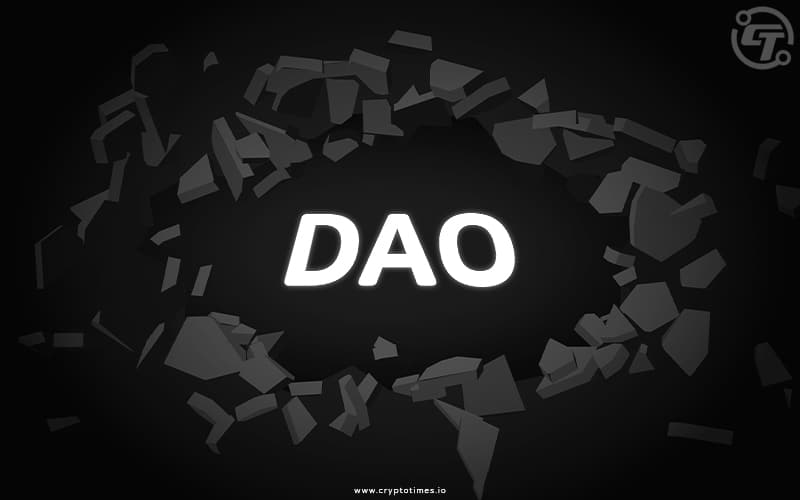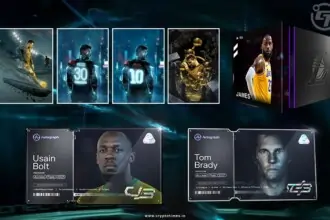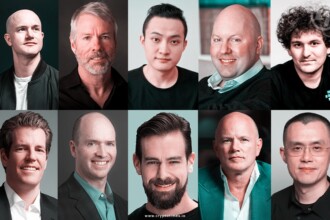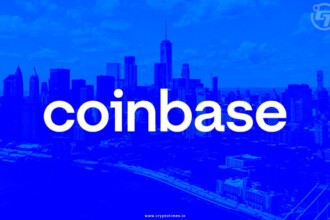The goal of incorporating blockchain technology into traditional financial institutions is to create a decentralized financial world that is more reliable and trustworthy. Smart contracts, on the other hand, have no default technique for implementing decentralization. As a result, a mechanism for decentralizing smart contracts while ensuring their integrity and internal security must be devised. DAOs, or Decentralized Autonomous Organizations, are the mechanisms that fill the void.
What is a DAO?
The acronym DAO stands for Decentralized Autonomous Organization. In a nutshell, DAO is a blockchain-based community-led organization built by computer code and smart contracts. The DAO’s major goal is to use voting to make important decisions and improvements about specific protocols or purposes. As a corollary, it has the ability to act independently of a central authority.
The DAO protocol can be implemented simply by including a decentralized governance mechanism. It’s important to note that not all DAOs are created equal, as different projects require different governance mechanisms.
How does a DAO work?
DAOs work as a crowdsourced organization, where everyone can propose amendments that proceed through external information and execute commands through a smart contract written for it. Every member of the DAO plays by the rules injected into the smart contract.
Overall, the proposal requires the consent or approval of the majority of DAO members to make any decision or modification.
Every proposal raised in the DAO is finalized through the voting. If a proposal is voted on by a majority of stakeholders it is then implemented, otherwise, it is discarded.
For example, you can compare DAOs as a parliament and any proposal prepared into the DAO as a bill. Every parliament already sets the threshold limit for votes to pass the proposed bill by the members. DAOs work in a similar way, but in an autonomous manner. Every decision or proposal made within the DAOs must be approved by a majority of voters.
Who can Vote in a DAO?
In DAOs, every proposal needs the approval of stakeholders incentivized through some kind of token mechanism. Therefore, if we hold the governance token of a project ( Say Uniswap’s UNI token ) we can take part in its decision-making process.
How to Vote in a DAO?
In order to vote on the project decisions in a DAO, we need to have the protocol’s governance token. To proceed further with the voting process our wallet must be linked to the protocol.
To determine whether a proposal is available for vote, we must visit the protocol’s website. Click on a proposal to vote on if it is open for voting. The vote should then be cast, and if the vote is successful, a confirmation message will appear.
Examples of DAO
The Bitcoin network could be considered the first decentralized autonomous organization (DAO). It works in a decentralized manner, with no hierarchy between players, and is coordinated by a consensus protocol.
Uniswap, MakerDAO, Aave, Curve, Compound, Synthetic, Sushiswap, Ethereum Name Service, and many other protocols are currently employing DAOs.
Limitations faced by DAOs
- Decreased Productivity
The properties of DAO (decentralization, immutability, trustlessness) come with some drawbacks, such as decreased productivity. The performance of the organization may suffer while maintaining the factors like decentralization of the Organization.
- Points of Centralization
If the token distribution makes a particular entity or person more powerful, then the project may become centralized. This can be verified by just watching the tokenomics of the project. The tokens should be distributed fairly in order to promote decentralization.
- Chain Splits
If a group of DAO members strongly protest against or for a proposal, it may lead to a chain split. This has happened in the past with Ethereum in 2016 which laid the foundation of Ethereum Classic.
- Accountability
In case of unfortunate events such as hacks, rug pull, scams, or manipulation of DAO, there is no accountable authority or person to whom members could solely accuse for the reason. The absence of central authority could also create turbulence in the situation of contradictory opinions, which we have seen in the Ethereum blockchain split.
- Time-Consuming
In order to make every minute changes or updates in DAOs, members must be required to raise proposals that pass through the voting process. This voting process could be a few days longer and we all know “Delay is the enemy of progress”.
How Hackers Exploit DAOs?
While the DeFi world is still in its infancy, some minor glitches and loopholes from smart contracts could spoil the investors’ experience with blockchain technology. Unfortunately, there have been numerous instances when hackers have gained access to pool assets and drained millions in crypto tokens.
Currently, there are many different ways for hackers to exploit the DAOs as well as protocols associated with them. The most common trick hackers use is compromising the DAOs by injecting malicious proposals with sneaky infected code that can altogether change the functions in the smart contracts.
The next step they do is an accumulation of immense tokens from third-party protocols such as Aave, Uniswap or that can actually provide major voting power, which they use to approve malicious proposals and ultimately, control the pool fund with millions worth of cryptos of investors.
Some incidents, Yet not solved
In April 2016, a DAO was formed on the Ethereum network. The governance token of the DAO managed to gain over $150 Million of investment in just a few days.
A hacker found a bug in the contract and managed to steal $50 Million worth of ETH. So, Ethereum developers decided to refund ETH to investors. However, some were not in favor of this because it was against the rule of Ethereum – that once a code is written it cannot be altered. It resulted in a chain split and a new Ethereum chain was born and it is the same Ethereum that we are using today. On the other hand, the original chain was named Ethereum Classic.
However, the DAO loopholes have still not been shorted, and the recent hack of Beanstalk Farms is an evidence of this. A credit-based stablecoin project lost all its total value locked inside protocol after the perpetrator fled away with $182 million worth of tokens.
Closing Remarks
In conclusion, DAOs allow organizations to break free from reliance on traditional institutions with the help of smart contracts. Instead of a central entity coordinating participants, governance rules are automated and written in the code which is responsible for the normal functioning of the protocol.
Keep Reading:







